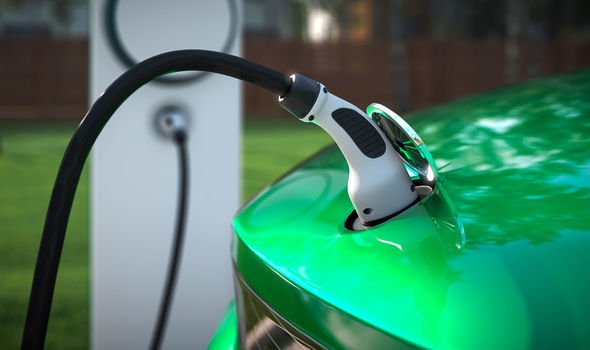
In addition to an estimated 100,000 tonnes of carbon-dioxide offset, the charging stations will cut down on fossil fuel imports.
USAID’s Urja Nepal on Tuesday inaugurated 23 new electric vehicles charging stations across seven locations in Bagmati Province under its grants programme, marking a significant step forward for Nepal’s EV ambitions.
Among them is a mobile EV charger.
This initiative aligns with Nepal’s determined target of increasing EV sales to cover 90 percent of all private vehicles and 60 percent of all public vehicles by 2030 to lessen the nation’s reliance on fossil fuels and promote a more sustainable transportation sector.
“USAID Nepal’s commitment and support to promoting electric mobility is second to none and it perfectly aligns with the government’s vision of energy transition to achieve net zero targets,” said Sandip Kumar Dev, joint-secretary at the Ministry of Energy Water Resources and Irrigation. “These business models of leveraging the private sector to scale up EV infrastructure will enable Nepal to accelerate its energy transition goal.”
This grant initiative of USAID Urja Nepal has been a tremendous support to Nepal Electricity Authority as it directly contributes towards the goal of having more and more charging stations soon to address the key constraints for massive adoption of EVs, said Kulman Ghising, managing director at the Nepal Electricity Authority. “And I would like to request other development partners to make contributions like this.”
The shift towards EVs is expected to bring numerous advantages to Nepal. In addition to the estimated 100,000 tonnes of CO2 offset, these charging stations aim to cut down on fossil fuel imports, which significantly impact the country’s trade deficit, USAID said in a statement.
“These charging stations are just the tip of the iceberg in Nepal’s energy transition and USAID Nepal is proud to continue to partner with the Nepal government and our local partners for the improved future of Nepal and all its people,” said Karen Welch, acting mission director of USAID Nepal.
Through the grant programme, Urja Nepal provided $346,315 to Yatri Design Studio and E.Stop Private Limited. This funding complements the $185,000 in-kind and financial support from the companies themselves, aiding them in developing innovative business strategies for the EV market.
With USAID’s support, the programme aims to help private businesses find effective business models to encourage the use of commercial and passenger electric vehicles by increasing the number of charging stations nationwide, the statement reads.
For instance, companies like Yatri and E.Stop plan to introduce subscription services or add extra amenities to their charging stations as part of their business plans. These approaches are meant to generate more income and improve the financial stability of their operations.
Beyond financial support for establishing the charging network, the grant recipients will undertake capacity-building and public awareness efforts. These include playing educational videos at charging stations, conducting focus groups, offering maintenance training workshops targeting women and minorities, and running marketing campaigns to encourage more drivers to switch to EVs.
Ashim Pandey, founder of Yatri Design Studio, expressed gratitude for the grant, highlighting its crucial role in advancing their mission towards a sustainable energy ecosystem and facilitating Nepal’s transition to clean mobility. “The support was paramount to catalyse the pilot programme, strengthen our team, and help us validate our assumptions,” he said.
Source: Kathmandu Post










